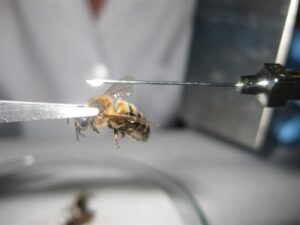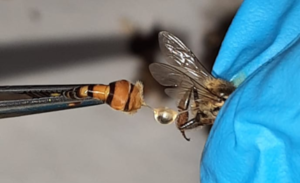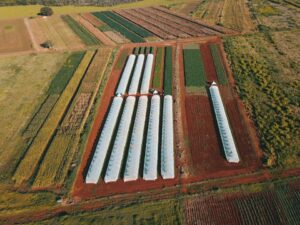Pollinator studies – Brazil
The relationship between pollination services and food production
The Brazilian Platform for Biodiversity and Ecosystem Services (BPBES) states that on a worldwide scale, about 75% of the main crops require pollination; bees are the most abundant group of pollinators in agriculture, visiting more than 90 % of the 107 main agricultural crops.
In Brazil, in a total of 191 cultivated or wild plants used for food production, 91 of them have some degree of dependence on pollinators, with essential dependence identified in 32 of these crops (35%).
The importance of establishing a risk assessment for pollinators
The use of agrochemicals in the main Brazilian crops is a vital component of productivity, since crops are attacked by a wide variety of biotic agents. Taking into account the potential impact that its use could generate on pollinators and, consequently, on food production, IBAMA established a process that assesses the risk, considering inherent toxicity of the product and the potential exposure of bees. Based on this, it is possible to characterize the main risks to bees, propose ways to mitigate them, establish parameters for more rational and safer use of agrochemicals, and, at the same time, preserving the quality of available natural resources.
The studies required
To do this, specific studies are required which can be conducted in a laboratory environment, in semi-field (Tunnel) and/or field conditions, following internationally recognized and validated methodologies and adopting Good Laboratory Practices (GLP) and/or Good Agricultural Practices (GAP) procedures. Data generated is used to identify whether certain security measures can be adopted to protect pollinators and to manage the risks. The process of Environmental Risk Assessment for bees, determined by IBAMA, is based on the three Tier studies: Tier 1 – Laboratory Screening , Tier 2 – Field residue studies, Tier 3 – Field effect studies – and Tier 4 – Monitoring.
For a more detailed explanation of SynTech Brazil pollinator services, the needs for such studies contact:
Andréia Shiwa – Regulatory Manager.
Edilaine Gaitarossa – Field Trials Manager.
Thaisa Roat – Pollinator Studies Coordinator.
For further information please email: info@syntechresearch.com



